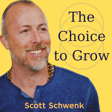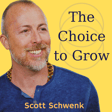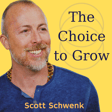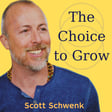
Adam Garcia on Loving All Your Parts
In this wide-ranging, vulnerable conversation, dancer, actor, and father Adam Garcia joins host Scott Schwenk for a deep dive into self-worth, inner child healing, and the surprising power of making peace with our many identities. From the stage to the stillness, Adam reflects on choosing growth through curiosity, imperfection, and connection. A rich journey through the river of life—with a few good laughs along the way.
Adam Garcia - Actor, Dancer, Leader
After training at Kerry & Glenn Dumbrells’ Capital Performance Studios in
Sydney, David Atkins & Dein Perry kindly offered Adam a slight detour from the
pursuit of biological sciences by taking him touring around Australia with the
musical Hot Shoe Shuffle. The show carried him to London where he was lucky to have a varied
and expansive career including 12 West-End musicals & plays.
He has appeared in numerous films and TV shows such as Coyote Ugly, Flight of The Conchords, Afterlife Of The Party & The Serpent Queen.
Most recently Adam has completed Johnathan Church’s production of 42nd Street as Julian
Marsh, a new film The Performance about vaudeville tap dancers’ experience in 1937 Berlin and also achieved writing, co-choreographing & co-directing the Irish & Tap dance show Emerald Storm that completed its first tour of the UK.
Scott Schwenk - Master Coach, Spiritual Teacher, Culture Architect
Scott’s teachings, courses and private mentoring guide leaders, seekers and creatives to explore their deepest selves in service of thriving on all levels of being, both individually and relationally.
Host and creator of the podcast The Choice To Grow, Scott is known for his hugely popular courses and workshops with OneCommune.com, Younity.com, Wanderlust Festivals, and Unplug Meditation, Scott has been catalyzing the inner evolution of others for decades: helping them to grow, transform obstacles into opportunities, and find Love within.
Scott spent several years living and studying in a meditation monastery which introduced him to the core body of Tantric meditation traditions which continue to flow through each of his teachings. Scott continues to study and teach from two key Tantric lineage streams.
Apprenticeships in leadership development, meditation and philosophy training, shadow work/shadow resolution and spiritual awakening are all part of Scott’s development into the thought-leader that he is today. He continues to refine his offerings studying and practicing with key innovators at the leading edges of human development.
Scott’s teachings support the entire person to not only progressively recognize, stabilize and embody our inextricable oneness with the source of creation (Waking Up), but also to resolve the wounds of the past (Cleaning Up), continually expand our capacities for wider and more inclusive perspectives on any moment (Growing Up) and creatively and joyfully participate and collaborate with all of life as a loving thriving human being (Showing Up).
You can receive a free guided meditation and explore Scott’s courses, workshops, retreats, training and master coaching at https://scottschwenk.com and can find him on Instagram @thescottschwenk.



